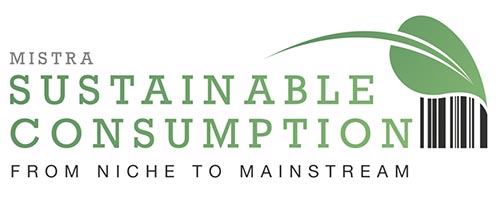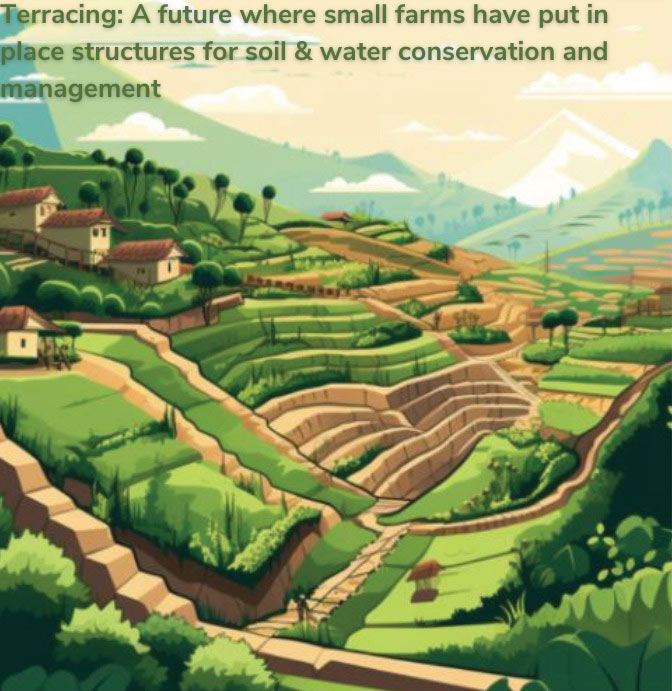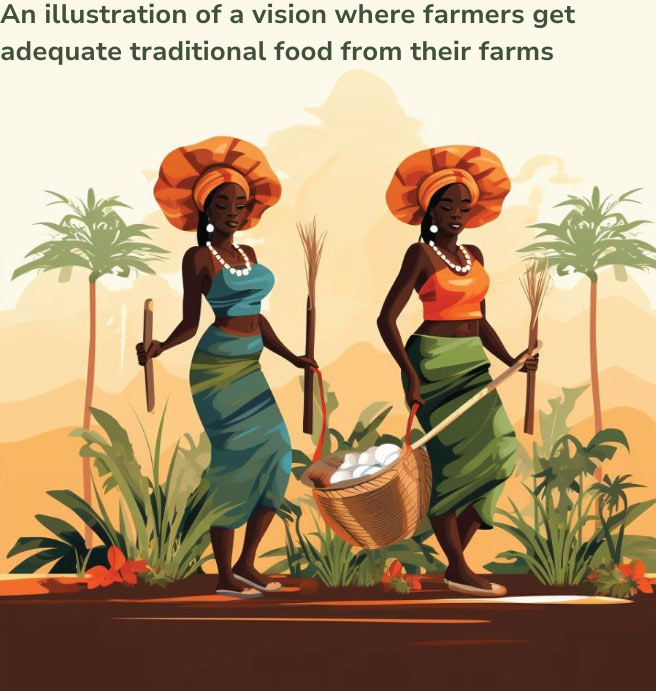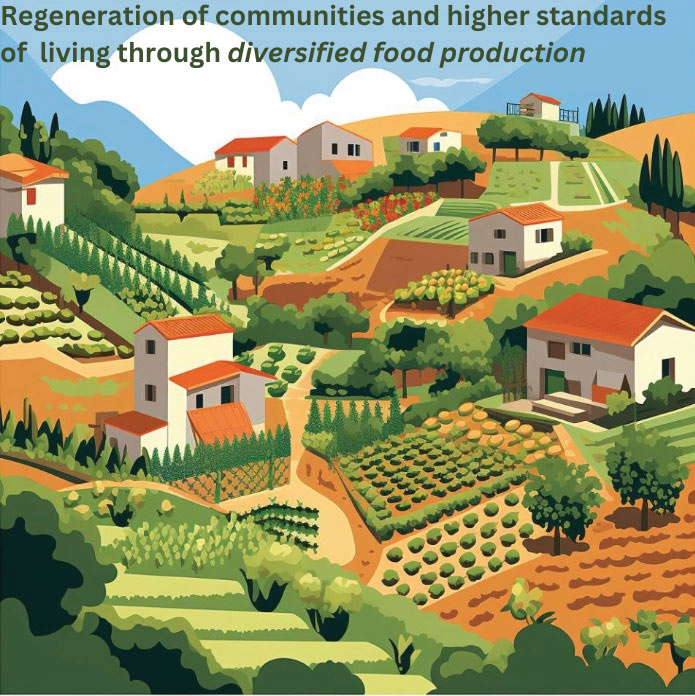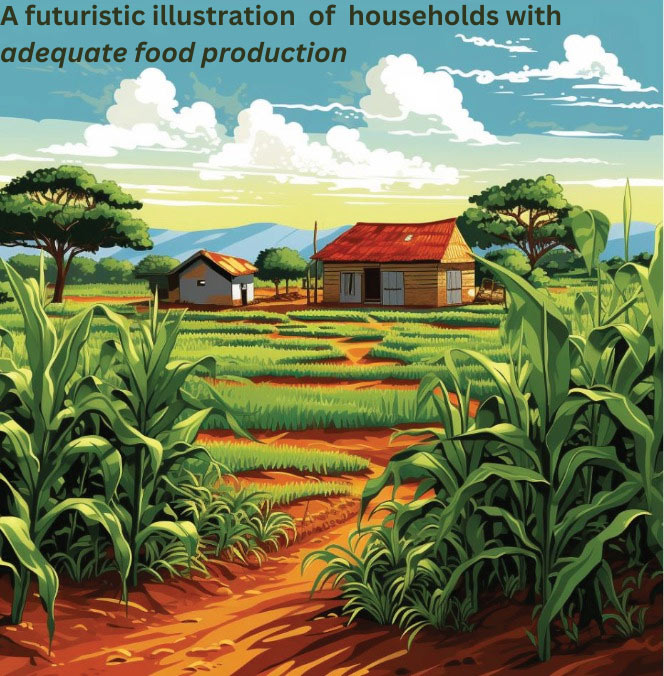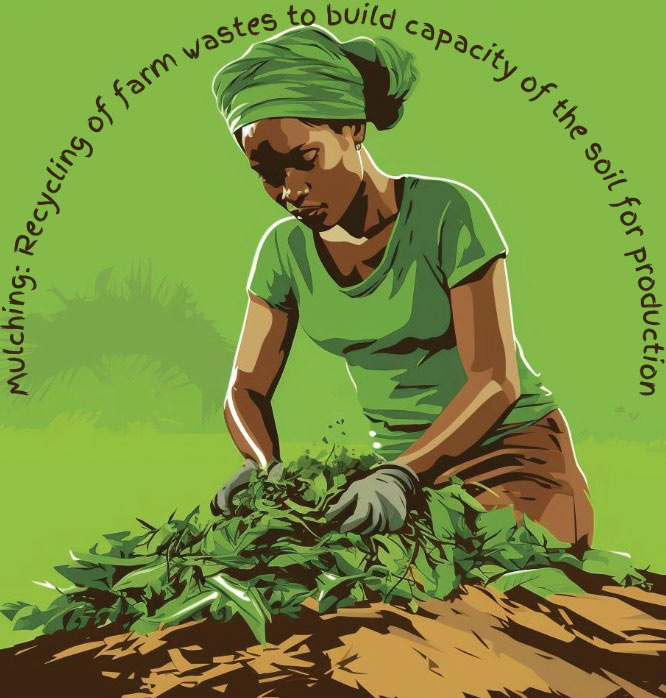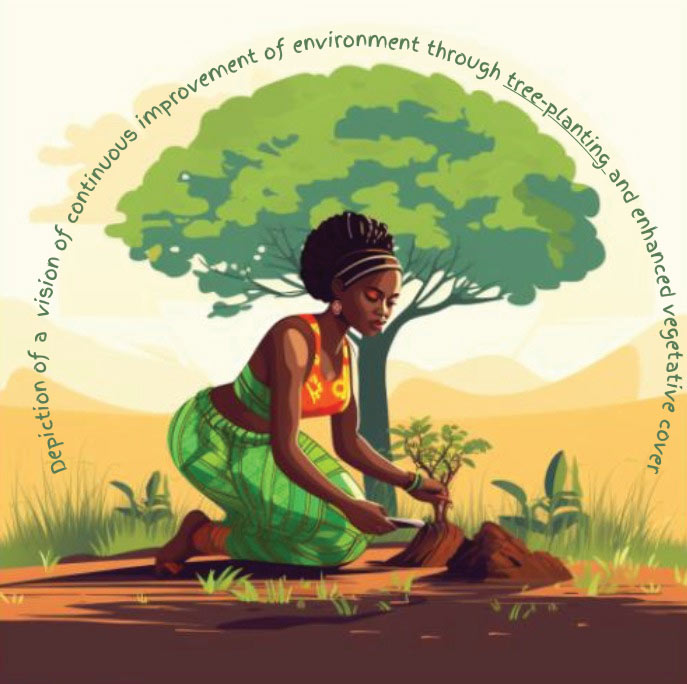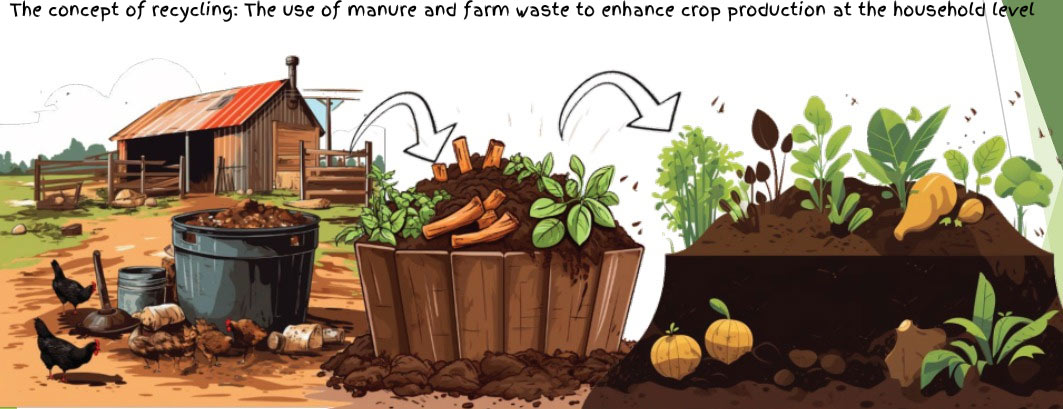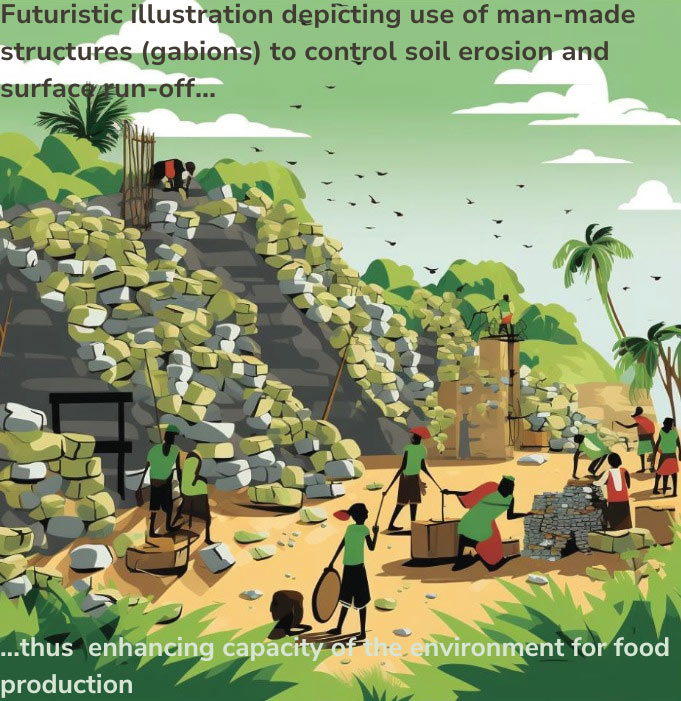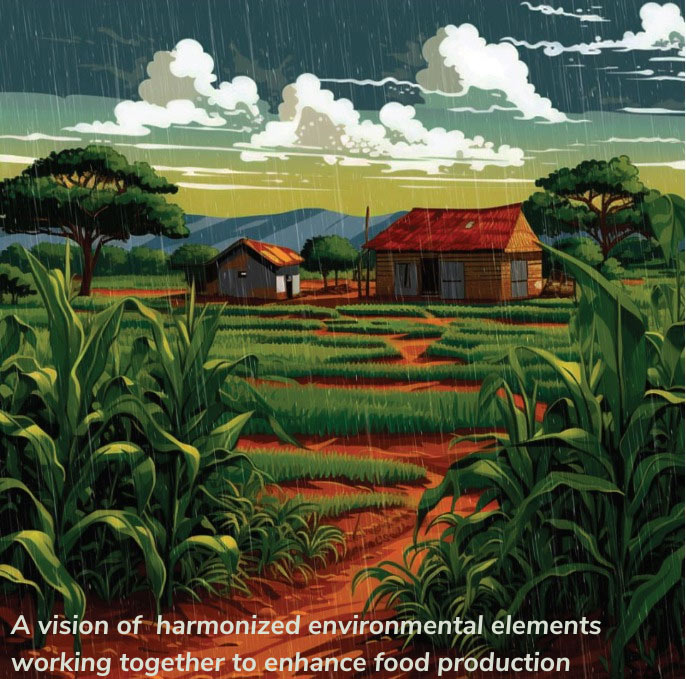Vision 2030
Participatory Ecological Land Use Management (PELUM), Kenya

The works show communities producing abundant and nutritious food through sustainable agricultural practices, while regenerating the environment and improving their own well-being.”
Lewis Gitari, Artist
The Vision
The envisioned future is one where communities flourish in harmony with nature, guided by sustainable practices and Indigenous Knowledge. This vision sees sustainable food production, healthier communities through balanced diets, reduced infant mortality, and lower living costs. It ends environmental degradation caused by agricultural chemicals, and replaces them with natural inputs like organic manure. Embracing traditional methods of cultivating nutritious indigenous foods stands as a cornerstone for fostering healthy and sustainable consumption practices. Key ideas include tree planting, terrace and gabion construction, mulching, minimum tillage, integrated pest management, and crop rotation.
About PELUM Kenya
PELUM Kenya is a member-driven network with 56 member organisations across 42 counties in Kenya. It focuses on strengthening and improving the capacity of network members for learning about and exchanging knowledge on agroecological practices. It undertakes needs- based assessments and trainings in this regard. It also works to influence policymakers to bring about more appropriate and equitable policies for smallholder farmers in the country and that better support food and nutritional security. PELUM Kenya also works in the value chain to promote agro-enterprises to boost farming household incomes.
2023 Campaign
Makueni County grapples with persistent food shortages due to inappropriate agricultural practices and environmental challenges. PELUM Kenya’s campaign raised awareness of the root causes of these challenges and the solutions, championing indigenous seed varieties and indigenous food production generated through agroecological production. Campaign activities included tree-planting with school pupils and advocating for agroecology within government. The campaign planted more than 700 trees and it gained a commitment from political leaders to promote agroecology.
